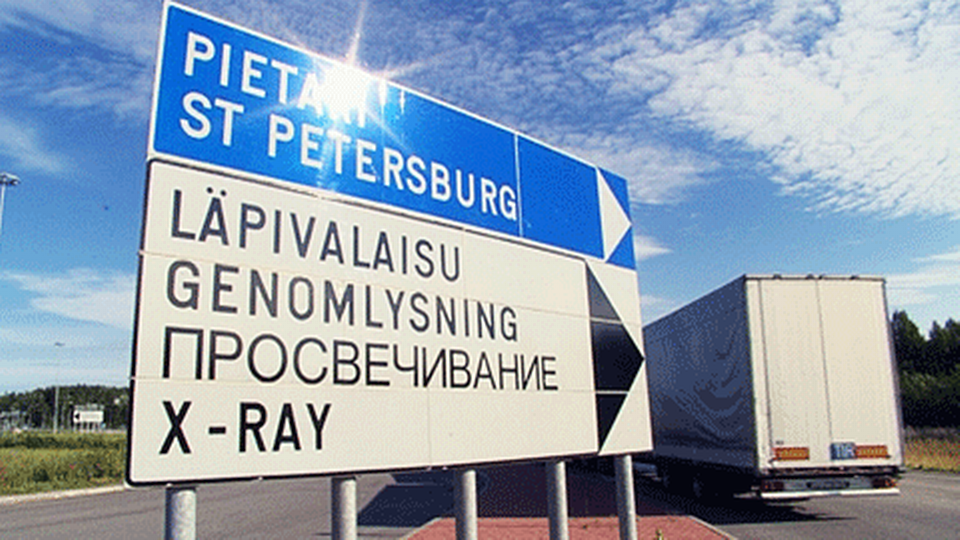Russians overwhelmingly support Vladimir Putin and his war in Ukraine “but only because this war does not require from them any victims while giving them a feeling of pride and satisfaction,” according to Moscow commentator Leonid Radzikhovsky; but whether they like it or not, they are going to have to pay for his adventure.
And while many Russians are prepared to tighten their belts in the face of Western sanctions, he argues, they cannot understand why at a time when many in Russia are suffering, their own government should destroy food and block all kinds of medicines at the border.
That anger has already eaten away at the Kremlin leader’s support in the population, and as Andrey Piontkovsky argues, it has given new focus to those closest to Putin about the losses they’ve suffered and a feeling they wouldn’t face popular anger if they overthrew him.
From a legal point of view, the destruction of what the state says is contraband is unarguable, Radzikhovsky says. But “the enormous anger” it is causing among the Russian population is “another matter” entirely. Many simply view these actions as “insanity,” a case of “beating one’s own so that the aliens will be afraid.”
The Kremlin’s imposition of sanctions on Western products was made because Putin believed that “under the pressure of European farmers, the EU would change its political line relative to the Russian Federation, the Moscow commentator says. That calculation has “completely failed.”
Of course, European farmers are unhappy about sanctions, “but the governments support them, they receive subsidies and in no way can influence the governments of their countries … In other words, the Russian leadership was a prisoner of its own Europhilia” and was confident that democracy everywhere but in Russia will work as it expects.”
That was and is “an obvious stupidity,” Radzikhovsky says, and completely contradicts what the Kremlin believes about its own people and its own decisions. And that stupidity in turn has led the Russian leadership to overreach and very publicly destroy foodstuffs it has placed an embargo on at the Russian border.
“Of course,” he continues, Russians believe that “American fascists are fighting with us, and in the Donbas, Ukrainian-American fascists are killing people and that Putin is a great man.” But “why can’t we have cheese?” Its destruction and that of other foods and medicines on the banned list simply doesn’t sit well in the minds of ordinary Russians.
That has "consequences for a people who remember the Leningrad blockade", who know that many in Russia are having a hard time with food, and that many will die because they cannot get the medicines they need from the only available sources, those in the West.
But it also has consequences for Russia’s elites, Piontkovsky says. “The decree about the destruction of sanctioned products is an absolute immoral and amoral decision,” given what Russians know and remember. And consequently, he says, it did not meet with the super-loyal approval that the Kremlin expected.
“On the contrary,” the Russian analyst points out, “it has provoked an absolutely negative reaction.” Statistics show that “tens of millions of Russian lie before the official poverty line,” and there are problems for pensioners, orphans and even soldiers. In such a situation, Russians are naturally asking why shouldn’t such products have been distributed to the most needy?
Despite that, Putin is unlikely to reverse his decree. He is someone who as German Chancellor Merkel has observed “lives in another reality,” as his other “more serious” crimes demonstrate. But because of that, he is hastening the end of his own regime with his own hands, Piontkovsky argues.
Putin thinks he can get anything by intimidation, but he is no longer frightening anyone. And the economy of his country, “deprived of Western technology and credits will not be able to function normally” as the collapse of the ruble.
According to Piontkovsky, all this shows that “we are already at that stage of an authoritarian regime when it passes into a totalitarian one,” and “the fate of such regimes is,” he suggests, “a palace coup” especially against a leader who has lost the mandate of heaven as shown by popular support.
Putin’s closest entourage, he continues, “understands that [Putin’s] policies not only threaten a national catastrophe but also (what is more important for them) hurts their personal interests for all of the people in the close circle of Putin are dollar billionaires who cannot exist without quite close, deep and friendly relations with the West.”
Now that the Russian people may be angry at Putin for what he is doing instead of remaining uncritically supportive, he suggests, may thus make the present moment or one very soon a time when those closest to the Kremlin leader will decide that it is time for him to go and for them to help him on his way out.





